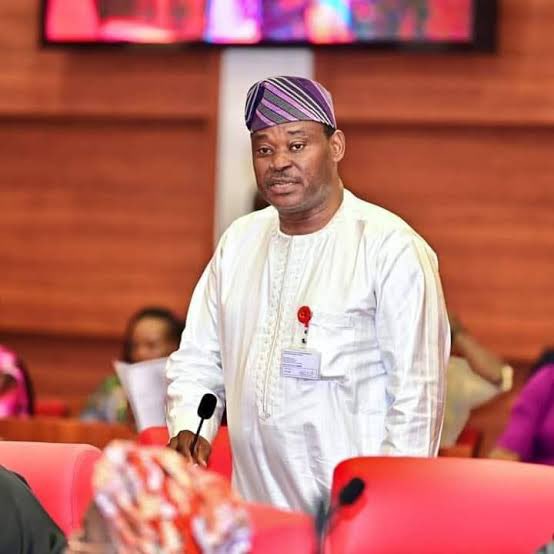President Bola Tinubu’s government is set to deploy cutting-edge technology, including Artificial Intelligence (AI), to combat the growing security threats in Nigeria in 2025.
This bold claim was made by Senator Jimoh Ibrahim, a member of the All Progressives Congress (APC) and the Chairman of the Senate Committee on Inter-Parliamentary Affairs.
Speaking on Channels Television’s Politics Today, Ibrahim revealed that the upcoming year will be a critical one for criminals in Nigeria as the administration plans to use advanced technologies to track and apprehend bandits, kidnappers, and terrorists across the country.
According to Ibrahim, the government will develop specialized apps powered by AI to assist security agencies in their fight against insurgents. “He will use AI to empower security personnel, making life uncomfortable for them,” he said, referencing President Tinubu’s ambitious plans for the nation’s defense.
This announcement comes on the heels of President Tinubu’s budget proposal for 2025, which includes a massive allocation of ₦4.91 trillion to defense and security. The proposal highlights the government’s focus on security, which has been one of the administration’s top priorities.
While presenting the ₦49.7 trillion national budget to the National Assembly, President Tinubu emphasized that a significant portion of the funds would go toward bolstering the country’s security infrastructure. Along with defense, the budget also earmarks substantial amounts for sectors such as infrastructure, health, and education.
The security allocation of ₦4.91 trillion is the largest single portion of the budget, underscoring the government’s commitment to ensuring a safer environment for Nigerians. Ibrahim believes this significant investment in security could yield remarkable results.
“If we spend ₦5 trillion on security, we would have more peace, and we’d be able to produce more,” Ibrahim stated, explaining that improving security could lead to a more stable environment for economic growth.
The lawmaker added that this improvement in security would contribute to Nigeria’s oil production, boosting revenues and improving the nation’s financial standing. With increased safety, Ibrahim argued, Nigeria could focus on enhancing its economic output, including boosting crude oil production, which remains one of the country’s main sources of income.
Despite the severe security challenges that have plagued Nigeria for years, Ibrahim was optimistic about the efforts of the current administration. He credited President Tinubu and the security forces with significant progress in reducing the influence of terrorist groups such as Boko Haram.
“The security index has improved,” Ibrahim asserted. “I see a positive security index, meaning that the army and police have done an excellent job. No city, local government, or state is under the control of Boko Haram as of today.”
These remarks come as the Nigerian government continues to tackle several security issues, ranging from Boko Haram insurgency to banditry and kidnappings across various parts of the country. Ibrahim acknowledged the persistent challenges but maintained that the government’s efforts have significantly reduced the hold of terrorist groups in the nation.
The Senator’s positive outlook on Nigeria’s security situation is a stark contrast to the ongoing fears of violence and instability that have plagued many regions. However, he remained confident that the combination of military action and technological innovation could shift the balance in favor of security.
In his assessment, Ibrahim noted that the continued investments in security would not only improve the nation’s safety but also create an environment where economic activities can thrive. He pointed to the example of how enhanced security led to increased oil production, suggesting that a peaceful Nigeria would see a surge in its economic output.
“The more secure the country, the more we can produce,” he said, emphasizing the correlation between peace and prosperity. Ibrahim’s comments reflect a broader belief that national security plays a central role in the country’s economic development.
While the lawmaker expressed satisfaction with the progress made under President Tinubu’s administration, he also called for continued efforts to secure every corner of the country. His praise for the security forces, however, came with a note of caution: more needs to be done, especially in the fight against emerging security threats such as cybercrime, which AI could help mitigate.

